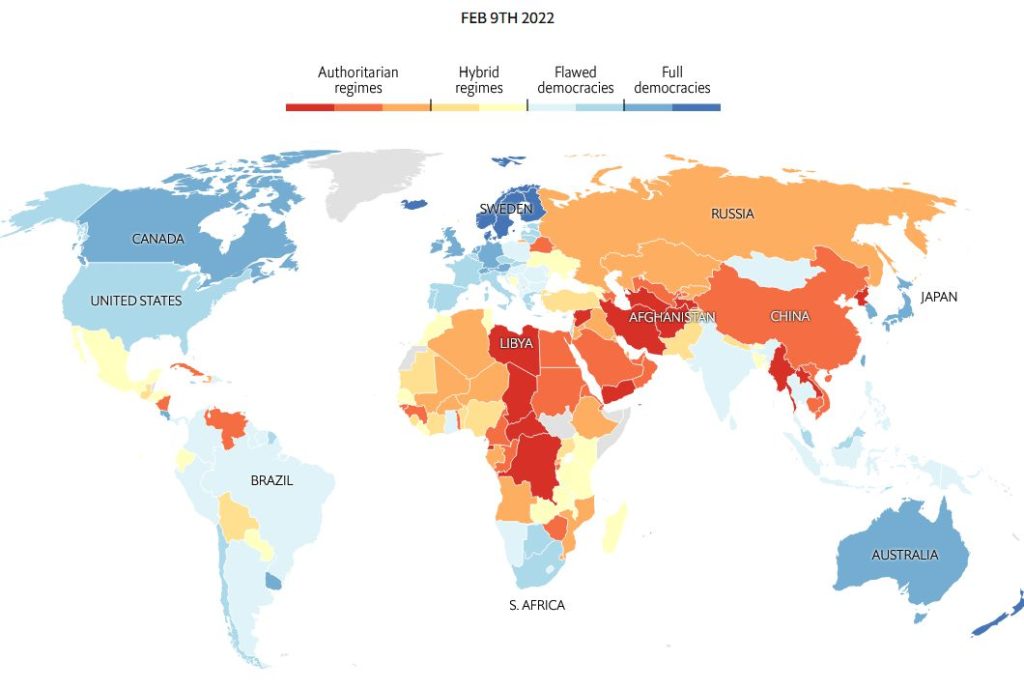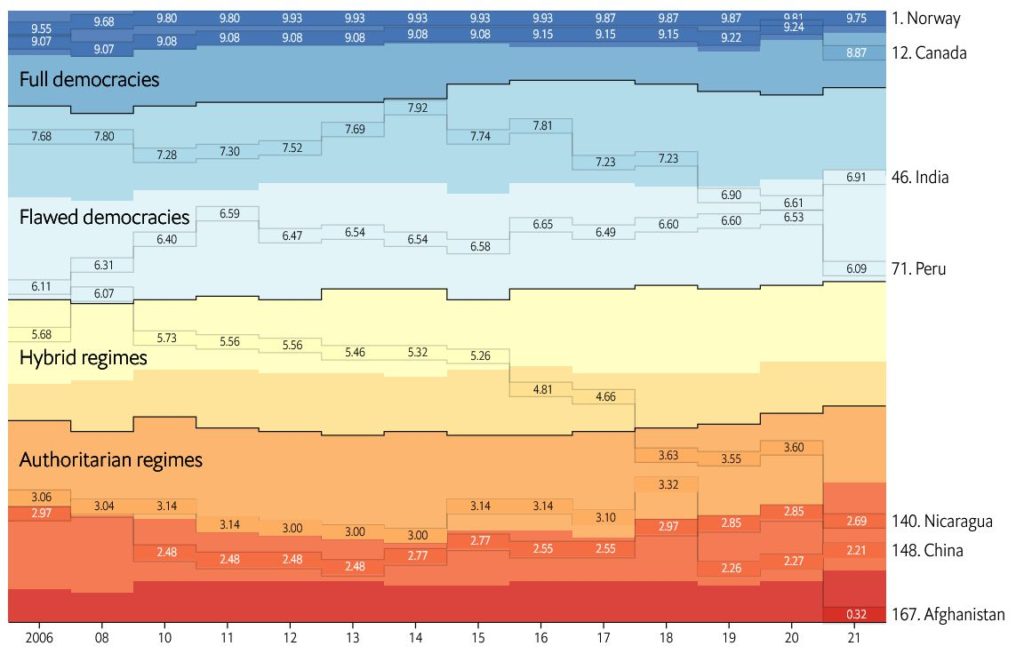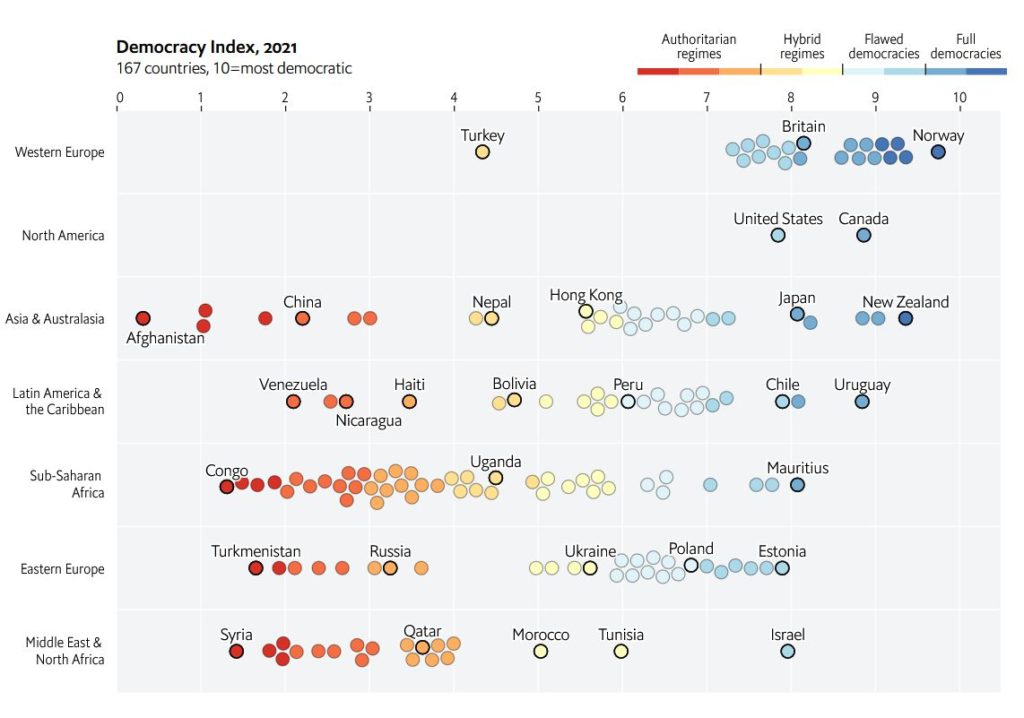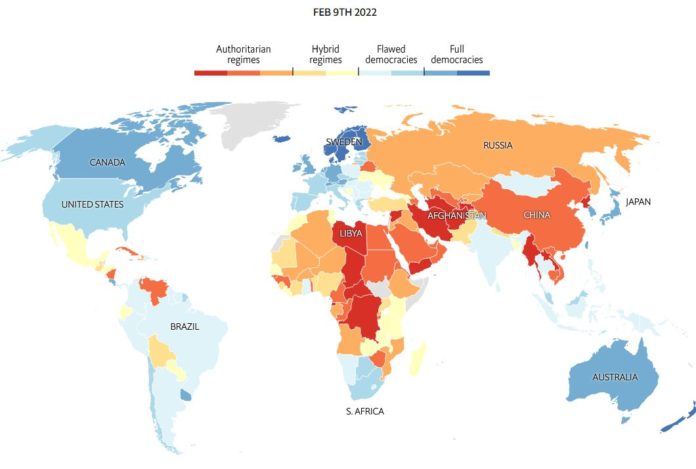98% of Latin Americans do not live in full democracy – Democracy Index shows
Latin America’s political calendar was packed in 2021, but the region’s democratic institutions have never been more insecure.
Around 80 percent of the region’s population lives under a democratic government, but only 1.3 percent (the people of Uruguay and Costa Rica) live in complete democracy, according to The Economist’s annual Democracy Index, which was released on Tuesday.
Chile and Honduras have also seen significant political changes in recent months. Elections were also held in Peru and Ecuador, but voters were presented with candidates representing vastly different agendas, unleashing the breakdown of centrist politics and deepening polarization, according to the British monthly.

Between skepticism about governments’ effectiveness, authoritarianism given free rein by the pandemic, and the erosion of institutions by “illiberal populists,” The Economist’s classification of the health of democracies around the world asserts that Latin America has experienced the “biggest reduction” in its index since it began publishing it in 2006.
Chile, for example, was downgraded from “full democracy” to “flawed democracy.” What really mattered was not the beginning of constitutional reform or Gabriel Boric’s election as president, but rather the circumstances in which these events occurred.

Only 55 percent of eligible voters in Chile, one of the index’s strongest regional democracies, voted in an election that The Economist describes as the fall of the dominant coalitions of the center, in which Boric and El Salvador ended up contending.
They hold diametrically opposing ideas on economics and social policy, says far-rightist José Antonio Kast. Pedro Castillo’s victory in Peru and Xiomara Castro’s victory in Honduras were both measured using the same yardstick.
The Economist magazine’s Democracy Index assesses the level of democracy around the world based on five criteria: electoral pluralism and the existence of democratic processes; government functioning; citizen political involvement; country political culture; and respect for civil freedoms.
It then assigns a score to each country in an index that was led by Sweden in 2021, with a score of 9.88, and placed Afghanistan at the bottom of the chart, with a score of 0.32.

In all criteria, Latin American countries saw a drop. Ecuador, Mexico, and Paraguay have lost their position as “flawed democracies” and are now classified as “hybrid regimes,” while Haiti, along with Cuba, Venezuela, and Nicaragua, has been added to the list of “authoritarian regimes.”
In an era when populist attacks on institutions are on the rise – the British publication specifically mentions the governments of Jair Bolsonaro in Brazil, Andrés Manuel López Obrador in Mexico, and Nayib Bukele in El Salvador – Uruguay and Costa Rica are the only countries with a high enough score to be classified as “full democracy.”
Image Credit: Getty
You were reading: 98% of Latin Americans do not live in full democracy – Democracy Index shows
